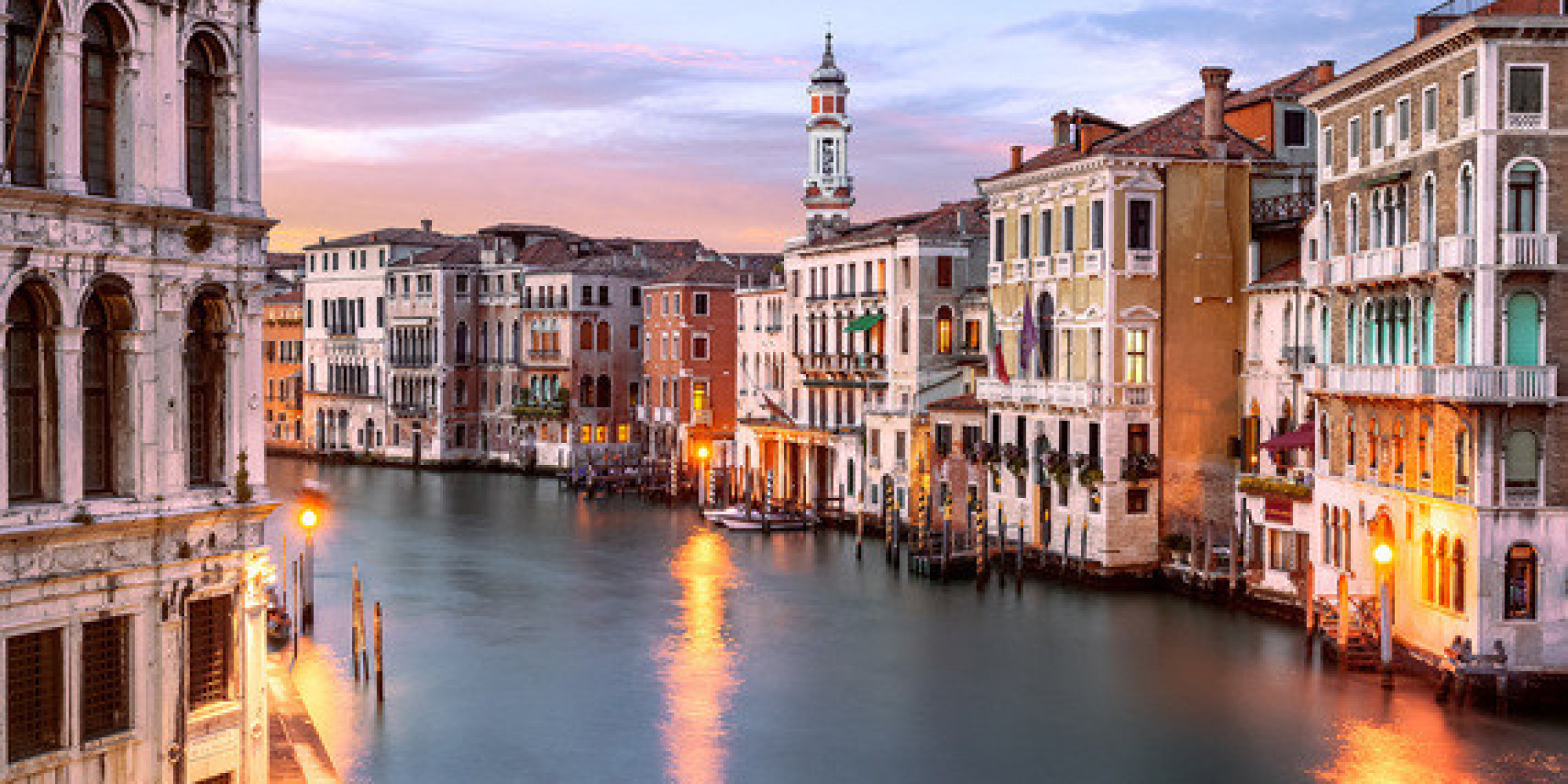The ‘Journey of the Book” continues. This blog takes us to Venice and completes
the story about the shocking event that occurred in the Topkai Palace in Istanbul on 16 January 1595, the night the sultan, Murad III died. The scene is now set for Jack Rogan’s next epic adventure – ‘Professor K: The Final Quest,’ which will be released next week!
Venice; January, 1597
The dense winter mist hovering above the murky waters of the Canale Grande covered Venice like a shroud. It should be right here, near the Realto Bridge, thought the young man sitting in the back of the small rowing boat. He was watching the ghost-like facades of the palazzos glide silently past like elaborate sets in some exotic play. Visibility was poor, and even the thick woollen cloak could do little to keep out the bone-chilling cold. As the vessel scraped along one of the posts used for tying up boats, the young man caught a glimpse of a crest set into a stone arch above him. He looked at the ring on his little finger, and smiled.
‘Stop! We are here,’ he shouted, pointing to a tall, ornate building rising out of the mist. The man at the oars pulled over and tied up the boat. ‘Wait here,’ said the young man excitedly. He climbed out of the boat and almost slipped on the wet, slippery wooden steps leading up to a narrow, moss-covered stone landing. Then he looked first at the massive portal, and then at the crest set into the stone above it, and nodded. This is definitely it, he thought and pulled his dagger out of his belt. Using the heavy hilt, he knocked on the iron-studded wooden door, his heart beating like a drum.
The destination he had been dreaming about for two long years was finally within his grasp. Yet, now that he appeared to have reached what he had yearned for, doubts began to claw at his empty stomach, churning up uncertainty and a little fear.
For what seemed an eternity, he stood in front of the door in silence and listened. Nothing. Then he knocked again – this time harder – and placed his ear against the door. After a while, he thought he could hear footsteps. Then a key turned in the lock and the heavy door creaked slowly open. A small, wizened old man, his face a creased map of a long life of hardship, looked at him with watery eyes. ‘What do you want?’ he growled.
‘I would like to see Cosimo da Baggio,’ replied the young man, taken a little aback by the almost hostile reception.
‘He’s not receiving; go away.’ Before the old man could close the door, the young man took a step forward and blocked it with his boot.
‘I think he will,’ he said calmly, pulled the ring off his finger and handed it to the old man. ‘Give him this.’
The old man looked at the ring, his eyes wide with astonishment and surprise. ‘Who are you?’ he asked after a while.
‘His grandson.’
‘Wait here,’ whispered the old man and closed the door.
 The grand da Baggio family palazzo had seen better days. Built in the early 16th century to impress and show off the wealth of the influential merchant family that had produced two doges, several cardinals, one pope and even a saint, was in obvious decline. The large entry foyer and the central atrium with the imposing staircase the young man had heard so much about from his mother, should have been adorned with paintings by famous Venetian artists like Giorgone
The grand da Baggio family palazzo had seen better days. Built in the early 16th century to impress and show off the wealth of the influential merchant family that had produced two doges, several cardinals, one pope and even a saint, was in obvious decline. The large entry foyer and the central atrium with the imposing staircase the young man had heard so much about from his mother, should have been adorned with paintings by famous Venetian artists like Giorgoneand Titian. Instead, the palazzo was empty, with only a few lonely family portraits gracing the corridors. Cold and damp, evidence of neglect was everywhere, a sad but accurate mirror of the family’s waning fortunes.
‘Not exactly what I expected,’ said the young man, following the old man up the stairs, ‘what happened?’
The old man stopped in front of a tall door on the first floor, caught his breath, and opened it. ‘You’ll find out soon enough,’ he replied. ‘The master is dying,’ he added sadly, before stepping aside to let the young visitor enter.
At first, the young man couldn’t see anything because it was almost completely dark in the room. The windows were covered with heavy brocade drapes, a fire crackling in a huge stone fireplace on the opposite side the only source of light in the dank room smelling of sickness and decay. As his eyes became accustomed to the gloom, the young man could make out a huge four-poster bed in front of the fire. Otherwise, the room appeared to be empty.
‘Come closer where I can see you,’ said a surprisingly strong voice coming from the bed.
The young man walked over to the bed and looked at the gaunt face staring at him.
A bony, shaking hand held up the ring. ‘Where did you get this?’ demanded the face.
‘It’s a long story.’
‘I’m a good listener; sit.’ The bony hand pointed to a chair by the fireplace. The young man pulled the chair across to the bed and sat down.
‘What’s your name?’
‘Osman.’
‘Hm… I am Cosimo da Baggio. Now tell me all about yourself.’
Over the next hour, Osman told his extraordinary story. He explained who he was, where he had come from, and why. He spoke of his mother with tenderness and love, and described life at the court of the Sultan of the mighty Ottoman Empire. He spoke of growing up in the harem at Topkapi Palace, watched over by his mother who had taught him Italian, brought him up as a Christian in a Moslem world, and had told him many stories about Venice and her childhood in the very palazzo they were in. He recounted events and places in surprising detail only a person intimately acquainted with the da Baggio family and its history could possibly have known, all proof of who he was, and the truth of what he was telling. Cosimo only interrupted once, when Osman described his dramatic escape from Topkapi Palace and the reasons for it.
‘Are you suggesting that 19 of your half-brothers were killed the night your father died, to ensure your oldest brother’s succession to the throne?’ asked Cosimo, the incredulity in his voice obvious.
‘Yes.’
‘Unbelievable.’
‘He’s telling the truth,’ said a deep voice coming out of the darkness. Osman turned around, surprised. He had assumed there was no one else in the room. Slowly, a tall figure emerged out of the shadows and came closer, the skullcap, black cassock, purple sash and heavy gold pectoral cross a clear indication that he was a prince of the Church. ‘I’ve heard reports about that horrible event, and the new sultan’s men were looking for a young courtier last year, right here in Venice …’
The bony hand pointed again; this time to the tall figure standing next to Osman.
‘This is Cardinal Urbano,’ said Cosimo, introducing his brother.
‘One thing bothers me,’ said the Cardinal. ‘The fratricide took place almost two years ago … Where have you been during that time?’
‘After my escape from the palace, I made it safely down to the harbour and went into hiding. My plan was to somehow join a merchant ship and get away as soon as possible. This turned out to be much more difficult than expected. The sultan’s janissaries were everywhere; looking for me. I was a great threat to the new sultan, you see. Because he had killed all possible contenders to the throne, I was the only surviving rival. Should he die without an heir, I would become sultan. That was the law. As long as I lived, he wasn’t safe …’
Osman paused, collecting his thoughts.
‘What happened next?’ prompted Cosimo after a while.
‘After lying low in a warehouse, I managed to get on board one of the ships by hiding inside a barrel. The ship sailed the next morning, and I became a stowaway. I had some food and water that would last for a couple of days, and no one came down into the hold in the bowels of the ship to inspect the cargo. For the first time since leaving the palace I felt safe. However, this illusion didn’t last long …’
‘Oh? Why?’ interjected the Cardinal.
‘On the third day of the journey, the ship was attacked by pirates. Fierce fighting erupted on deck, and I decided it was time to show myself. This I did, and joined in the melee. I thought that perhaps by making myself useful in repelling the attack – I am a good swordsman – I could find acceptance among the crew. For a while things looked promising, but then the pirates gained the upper hand and took the ship. Most of the crew were killed.’
‘But not you,’ interrupted Cosimo.
‘No. I was captured and taken to the slave market in Alexandria. I was young and strong, and the pirates thought I was worth something to them alive. I was sold to a spice trader and began to work for him in his warehouse. Looking back, I think this saved my life. The sultan’s agents and spies were searching for me everywhere. They were sent to every corner of the empire and a huge reward was offered for my capture.’
‘I heard about that,’ said the Cardinal, nodding his head.
‘Inside the spice trader’s warehouse, no one gave me a second look. I was a slave toiling from sunup to sunset. I was invisible. I stayed there for a year, until a fortuitous event changed everything.’
‘What happened?’ asked the Cardinal.
‘A fire broke out. It wiped out most of the neighbourhood. The spice trader’s warehouse burnt to the ground, many were killed, but I managed to make my escape. After that, I reinvented myself, became a seafarer and joined a Spanish merchant ship. This wasn’t too difficult in Alexandria. Merchants were always looking for crew. After many a journey, I finally made it to Venice; and here I am,’ said Osman quietly. He reached inside his tunic and pulled out the metal tube his mother had given him the night of his escape from the palace. ‘Somehow, I’ve been able to keep this safe during all that has happened to me,’ said Osman. ‘No one thought of searching a poor wretch like me for anything valuable. I managed to conceal this container on my person and keep it with me at all times, just as my mother had instructed me to do.’
Osman opened the container and pulled out the rolled-up little painting. ‘She asked me to give you this,’ he whispered, his eyes misting over, and began to unfurl the painting. Leaning forward, Cosimo pushed himself up on his elbows to get a better look; the Cardinal came closer.
‘What is it? ‘asked Cosimo, frowning.
‘Here,’ see for yourself,’ said Osman and placed the exquisite little painting on the bedcover in front of his grandfather. ‘Your daughter sends her love; and me.’




